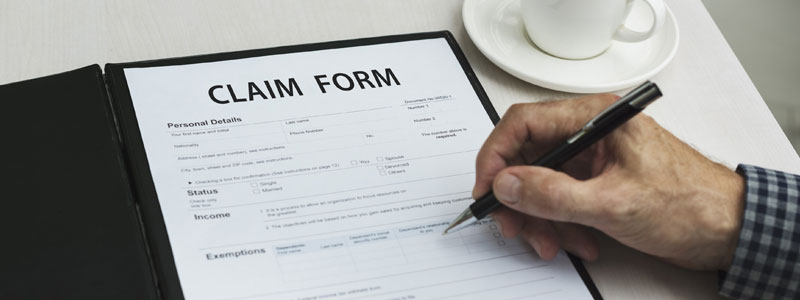Do I Have to Pay My Deductible If I’m Not at Fault?
You do not have to pay your deductible if you are not at fault for the car accident. That being said, you might want to pay your deductible and file for damages with your own insurance company, instead of filing with the at-fault driver’s insurance. If you aren’t at fault in an Indiana car accident, […]
February 3, 2017
If you aren’t at fault in an Indiana car accident, there are two ways you can recover damages:
- Filing a claim with your insurance company
- Filing a claim with the at-fault driver’s insurance company
There are advantages and disadvantages to each option, but you only have to pay your deductible if you go through your own insurance company.
Advantages of Filing a Claim with Your Insurance Company

There are some clear benefits to filing with your own insurance company after an Indiana car accident:
- Resolving your property damage claim more quickly
- Potentially getting reimbursed for your deductible
1. Resolving Your Property Damage Claim More Quickly
By far the biggest benefit to going through your own insurance is time.
Your property damage claim will likely resolve more quickly with your own insurance than with someone else’s. You’re their client, after all, so it benefits them to make sure you get a good customer service experience.
Your insurance company will estimate the damage to your car and pay to have it fixed. If your car was totaled, then they’ll pay the amount your car was worth at the time of the car accident.
These estimates are fairly easy to calculate and typically can’t be negotiated for more. Because of this, your property damage claim should resolve quickly as long as the insurance company doesn’t drag its feet. And again, your own insurance company is less likely than someone else’s insurance company to drag its feet because you’re their client.
However, the length of your personal injury claim depends on a variety of factors, including the extent of your injuries and medical treatment. It’s important to keep your personal injury claim and property damage claim separate during this process. An Indiana car accident attorney can handle your personal injury claim and help you secure compensation for all of your damages, not just your initial injuries.
2. Potentially Getting Reimbursed for Your Deductible
Even though you have to pay your deductible, your insurance company may be able to subrogate from the other insurance company. That means your insurance will try to get the at-fault driver’s insurance company to pay them back for the money they paid upfront for your expenses. If your insurance company proceeds with subrogation, you should be able to recover your deductible.
Disadvantages of Filing a Claim with Your Insurance Company

You might not want to file a car accident claim with your own insurance company if:
- You can’t afford to pay your deductible
- You’re worried your premium will go up
1. What Happens if You Can’t Pay Your Car Insurance Deductible?
One clear disadvantage of filing with your insurance company is that you’ll have to pay your deductible up front. If that isn’t an option for you, then you may be better off playing the long game and filing with the at-fault driver’s insurance company.
There is also no guarantee that your insurance company will be able to recover the money they spent — including your deductible — through subrogation. If you go through the at-fault driver’s insurance company, you’re guaranteed not to have to pay your deductible. It just might take you a little longer to get back on the road.
2. What Happens to Your Insurance After a Not At Fault Accident?
Another disadvantage is that your insurance rates may go up. Some insurance companies don’t raise premiums if the car accident wasn’t your fault, but others still do. Check with your insurance company to see what their policy is on raising premiums after filing a car accident claim.
Why a Police Report Is So Important after a Car Accident

Getting to decide whether or not to pay your deductible hinges on the fact that you weren’t at fault. It’s important to make sure credible sources verify your version of events.
Call the police whenever you’re injured in a car accident, even if you think you’re okay or the damage is minor. Indiana law requires you to call the police if anyone is injured or if there is more than $1,000 in property damage. You’re also legally required to notify your insurance company that you’ve been in a car accident. (Notifying your insurance company is different from filing a claim.)
The police can also help determine who is at fault. A police report isn’t the final authority on fault, but having a police report that places the blame on the other driver is a powerful way to strengthen your car accident claim.
It may be tempting not to wait for the police, but you risk having the other driver lie to his insurance company and say you were both at fault. To keep your options open for recovery, make sure you call the police after a car accident.
Help from an Indiana Car Accident Attorney
Fixing or replacing your car after an accident is difficult enough, but if you’re injured, you also have to deal with other damages. Between your medical bills, your pain and suffering, a lack of income, and other issues, you shouldn’t have to handle your personal injury claim all on your own. Our team of personal injury lawyers can help.
An Indiana car accident attorney can make sure you get the compensation you deserve, regardless of whether or not you choose to pay your deductible. If you’ve been injured in a car accident, call Hensley Legal Group at 317-472-3333, or contact us online for a free conversation about your claim. Be sure to download our free ebooks, Consumer’s Guide for Injured Victims and A Quick Guide to Property Damage, for more information about what to do after a car accident.
Available 24/7
Free Case Review
You won’t pay any fees until we win your case.
It’s easy - you can: